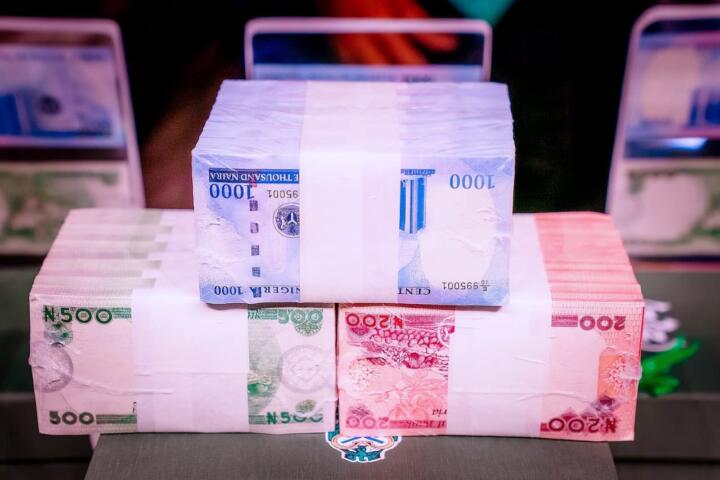The Federation Account Allocation Committee (FAAC) has disbursed a total of ₦2.103 trillion to the federal, state, and local governments as revenue allocation for September 2025, marking one of the highest monthly disbursements in recent years. The surge in allocation reflects improved revenue generation from the oil and non-oil sectors, as well as enhanced remittances from key revenue-collecting agencies.
According to a statement issued after the committee’s monthly meeting in Abuja, the total distributable revenue comprised allocations from statutory revenue, Value Added Tax (VAT), Exchange Difference, Electronic Money Transfer Levy (EMTL), and augmentation from the Excess Crude Account (ECA). The meeting, chaired by the Accountant-General of the Federation, Mrs. Oluwatoyin Madein, was attended by commissioners of finance, representatives of revenue-generating agencies, and officials from the Central Bank of Nigeria (CBN).

Out of the ₦2.103 trillion total, the Federal Government received ₦841.15 billion, the 36 states got ₦707.53 billion, while the 774 local government councils received ₦518.32 billion. Additionally, oil-producing states received ₦36.41 billion as derivation (13% of mineral revenue).
Mrs. Madein attributed the increase in total distributable revenue to higher crude oil prices, improved tax collection, and stronger performance in customs duties and non-oil revenue streams. She explained that the combination of fiscal reforms, digital revenue monitoring systems, and renewed anti-leakage measures had significantly boosted the government’s fiscal performance in the third quarter of 2025.
“The consistent rise in monthly disbursements underscores the Federal Government’s commitment to fiscal transparency, efficiency, and accountability. We have witnessed steady improvements in oil production and better performance from non-oil sectors, which continue to enhance total revenue inflows,” she said.
Breakdown of the revenue sources shows that gross statutory revenue for the month stood at ₦1.242 trillion, while Value Added Tax (VAT) contributed ₦473.6 billion. Revenue from the Electronic Money Transfer Levy accounted for ₦20.15 billion, and exchange gain amounted to ₦367.25 billion. The committee noted that the figures reflect growing confidence in the country’s economic recovery measures, especially efforts to curb oil theft and expand the tax base.
The FAAC communiqué also disclosed that total deductions for cost of collection by revenue agencies amounted to ₦78.3 billion, while ₦260 billion was set aside as transfer to the non-oil excess account and stabilization fund.
The rise in allocations is expected to provide a fiscal boost to state and local governments, enabling them to meet salary obligations, fund infrastructure projects, and implement social welfare programmes. Economists, however, cautioned that prudent management and transparency in the use of these funds will be critical to sustaining fiscal balance at subnational levels.
Speaking on the development, Dr. Ayo Teriba, an economic analyst, said the increased revenue disbursement is a positive signal for fiscal sustainability but warned that the current exchange-rate-driven gains might not be sustainable without diversification.
“While the FAAC figures are impressive, Nigeria must focus on long-term revenue stability by reducing dependence on oil and building stronger non-oil revenue sources such as manufacturing, digital services, and agriculture. Otherwise, we risk exposing subnational governments to revenue shocks when oil prices fluctuate,” he noted.
Similarly, Professor Uche Nwokoma, Director of the Centre for Economic Policy and Research, University of Lagos, commended FAAC’s improved disbursement record but urged greater fiscal discipline at the state level. He said the availability of larger funds should translate into tangible development outcomes such as road rehabilitation, healthcare improvement, and education investments.
“The challenge is not about how much is shared, but how well it is used. States must prioritize projects that directly impact citizens and enhance productivity. This is the only way to translate revenue gains into real economic growth,” he said.
Meanwhile, the Nigeria Governors’ Forum (NGF) has pledged to ensure that states utilize the September allocations judiciously. In a statement, the Forum’s Chairman, Governor AbdulRahman AbdulRazaq of Kwara State, reaffirmed the governors’ commitment to transparency and accountability, adding that improved FAAC receipts will help states implement capital projects and boost service delivery.
He noted that while the higher allocations will ease fiscal pressures, states must remain cautious in expenditure due to ongoing inflationary trends and exchange rate volatility. “We must strike a balance between meeting short-term obligations and investing in long-term economic resilience,” he said.
The Federal Government also assured that part of its share of the allocation will be directed toward infrastructure expansion, debt servicing, and social investment programs, as part of efforts to stimulate inclusive growth.
Analysts have linked the record allocation to recent fiscal and monetary reforms, including the unification of the exchange rate, improved oil production levels averaging 1.67 million barrels per day, and enhanced remittance efficiency from the Nigerian National Petroleum Company Limited (NNPC Ltd.) and Federal Inland Revenue Service (FIRS).
With the September disbursement crossing the ₦2 trillion mark for the second consecutive month, fiscal experts believe Nigeria may be entering a phase of stronger revenue generation if reforms in energy, taxation, and trade are sustained.
As FAAC continues to push for transparency and efficiency in revenue allocation, stakeholders are hopeful that the trend of rising monthly allocations will translate into improved public service delivery, infrastructural growth, and greater financial stability across all tiers of government.
Support InfoStride News' Credible Journalism: Only credible journalism can guarantee a fair, accountable and transparent society, including democracy and government. It involves a lot of efforts and money. We need your support. Click here to Donate
